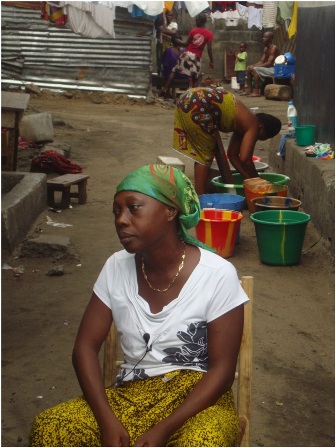Violence Against Women
Source: FrontPageAfrica
The case of Ruth Berry Peal has prompted renewed calls from anti-FGC activists for the Liberian government to join that 24 other African countries that have passed laws that specifically make female genital cutting illegal. No such law exists in Liberia at present, prompting lawyers acting on behalf of clients like Berry Peal to pursue other charges such as kidnapping and felonious restraint.
Lawyers say such charges may not be as clear-cut for the court system and may not attract a jail sentence that is appropriate for the crime.
In June 2011 then Internal Affairs Minister Nelson Blamo promised FGC opponents that he would work with the Ministry of Justice to draft a law banning FGC. In November 2011 the government took steps towards ending FGC by persuading Sande leaders to stop the practice. President Ellen Johnson Sirleaf attended a ceremony to mark the event. The Ministry then issued a notice to all countries directing that all Sande activities by shut down and promising that violators would be held liable. Some members of Sande have promised to defy that dictate and numerous incidences of cutting have been reported. To date there has been no more action to introduce a law banning FGC.
The government failure to enact a law has disappointed FGC opponents. "This issue has been left for civil society to deal with for far too long." Says Efua Dorkenoo, Advocacy Director for the NGO Equality Now's FGM Program. "Not only the Liberian but all governments which have not enacted a aw banning FGM need to do so as a matter of urgency to help create an enabling environment to promote education against FGM and to ensure that this brutality is eliminated once and for all. Africa has many wonderful traditions but FGM is certainly not one of them".
The international community has made a strong push against the practice, also known as female genital mutilation or FGM, in recent years, because of the health effects on women who have undergone it.
In December 2012, the UN General Assembly passed an Africa-led resolution calling for a global ban on female genital cutting. That represented the first time that the General Assembly agreed to include the elimination of FGC on its agenda. Its adoption represented the culmination of years of advocacy work by the Ban FGM Campaign, an international coalition of human rights groups led by No Peace Without Justice, and including the Inter-African Committee on Traditional Practices, Equality Now, Euronet-FGM, La Palabre, and Manifesto 99.
The campaign has included wider international involvement to stop FGC, international monitoring bodies and resolutions that condemn the practice and revised legal frameworks and growing political support to end FGM. In addition to the passage of laws in 24 African countries, 12 industrialized countries with immigrant communities with populations from FGM practicing countries have enacted bans.
In most countries the prevalence of FGC has decreased and an increasing number of women and men in practicing communities support ending its practice according to the WHO.
In Liberia there has been strong resistance to elimination of what is seen as an important cultural tradition by members of the Sande secret society. As many as 2 in every 3 women in Liberia are estimated to have undergone the procedure which is mostly carried out on young girls sometime between infancy and age 15, and occasionally on adult women.
The WHO says, "FGM has no health benefits, and it harms girls and women in many ways. It involves removing and damaging healthy and normal female genital tissue, and interferes with the natural functions of girls' and women's bodies. Immediate complications can include severe pain, shock, hemorrhage (bleeding), tetanus or sepsis (bacterial infection), urine retention, open sores in the genital region and injury to nearby genital tissue."
Longer-term problems can include recurrent bladder and urinary tract infections, cysts, infertility and an increased risk of childbirth complications and newborn deaths.
Across Africa, it is estimated more than three million girls will undergo FGC annually. About 140 million girls and women worldwide have had the procedure.
In Africa, about 101 million girls age 10 years and above are estimated to have undergone FGM.The practice is most common in the western, eastern, and northeastern regions of Africa, in some countries in Asia and the Middle East, and among migrants from these areas.
Opponents say Berry Peal's case shows it is time to time to end FGC in Liberia is now.
"Ruth Berry Peal's forced genital mutilation illustrates how FGM is a severe form of violence against women and girls," says Dorkenoo. "While trying to hide behind the cloak of supposed rich African 'traditions', we know that the primary purpose of FGM is to enforce direct control over the natural sexuality of women and girls by damaging or eliminating an organ of female sexual pleasure. Ruth's case illustrates how FGM is being used as a weapon by gatekeepers of the practice to terrorize the population into silence."

Advocates say Ruth Berry Peal's case shows it is time to time to end FGC in Liberia is now.
